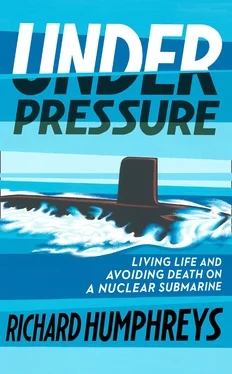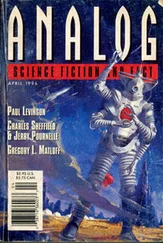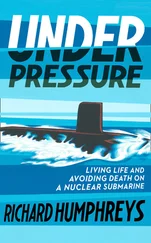***
HMS Raleigh , Torpoint, Cornwall, nine months earlier.
I’d had a plan – a clear plan – since joining the Royal Navy that I wanted to serve with the elite. I wanted to be challenged, and if I was going to do it I needed to throw my heart and soul into it. I also needed the adrenaline fix. As a restless but determined soul who wanted to do something a tad different with my life I decided on the Submarine Service, the ‘Silent Service’. I wanted some of that, and although I had no idea what it would entail or what was required both mentally and physically, it appealed as a test. I’d been intrigued by submarines since childhood and had regularly seen them at the Plymouth naval base on our family’s annual summer break to the beautiful South Hams region of Devon. We’d spend at least one day visiting Plymouth Hoe for a game of crazy golf followed by fish and chips, gazing out to sea where, among others, Drake had sailed in 1588 to engage the Spanish Armada. Plymouth had been a vital centre during the Age of Empire, and all the sailor-scientists had set sail from here – Cook, Bligh and Darwin. Its naval history carried on and on through the two world wars, right up to the fleet of vessels I’d see on my boyhood holidays.
After lunch the family would take a guided trip round the warships on one of the boats that departed from the Mayflower Steps on the seafront, and we’d work our way past the might of the modern Navy. The moored-up, rusting warships seemed large, robust, even a tad soulless.
Meanwhile, the submarines tied up alongside looked anything but; sleek and powerful, with a large helping of intimidation to boot, they radiated a sense of mystery and glamour. I’d sit there looking at them, marvelling at what lethal pieces of machinery and wondrous feats of modern engineering they were. Enigmas to me in many ways: one minute powering forward on the surface like a ship, then in a flash simply vanishing under the water, wholly hidden from the world, completely self-sufficient, relying on no one, asking for nothing.
Unbeknown to me at the time, on these holiday boat trips I was witness to the changing nature of the Navy. It was no longer the surface boats that dominated the dockyards but the submarine. For where once it had been the battleship, aircraft carrier and frigate, now it was the age of underwater supremacy.
But even at that age I did sense that perhaps the ultimate mental examination was – as it still is – coping with life under the sea. A world without natural light, cooped up alongside more than 140 other men, eating the same food, breathing the same air, surviving together in some of the most forbidding conditions imaginable. Before I was to attempt this, however, at the age of 17 I tried to join the French Foreign Legion in Aubagne, near Marseilles. I’d ventured out there alone by ferry and train – having told my mum and dad I was off inter-railing with a couple of mates – and passed all the initial tests, both fitness and written, only to be told by a corporal of the 2nd Foreign Parachute Regiment that I needed parental permission as I was not yet 18. This was never going to happen. Immaculately dressed in fatigues and green beret, the chiselled Englishman cheerfully advised me to reapply in a few months, seemingly implying it would be a mere formality and that a career in the Legion lay ahead. To this day my mother knows nothing about this episode in my life, nor does my father.
I’d been fortunate enough to win a scholarship to public school in the Midlands for some of my secondary education. I didn’t come from a wealthy family – my family had grafted all their lives – so boarding school had certainly been an eye-opener as to how the other half lived, but it was useful in developing coping measures and survival instincts, and enabled me to get along with pretty much everyone. It was here that I first read Simon Murray’s Legionnaire , his classic account of serving in the Foreign Legion and the very book that had inspired my ill-judged trip to Marseilles. But the book also taught me something else – that the traditional trip through further education and then college or university wasn’t for me. I’d had enough of textbooks, teachers and essays; it was time to do something against the grain for a few years and see where I ended up.
There didn’t seem much point hanging around in the real world, as Mrs Thatcher and her Conservative government were wantonly destroying the West Midlands and most of northern Britain. The very recent miners’ strike was evidence of that, with the hitherto unseen spectacle of the British police having pitched battles with miners in desolate fields across South Yorkshire. It seemed that tradition and heritage no longer stood for anything. The miners, who could trace their family lineage back to the start of the Industrial Revolution, when the mining industry supplied power to steam engines, generated electricity and heated buildings, now found themselves on the sharp end of the politics of hate and the systematic destruction of the industrial heartlands. Glasgow, Newcastle, Manchester, Liverpool, Leeds, Sheffield and Birmingham were the major cities on the brink of economic collapse, and this had a knock-on effect on their satellite communities, my hometown of Wolverhampton being one.
Wolverhampton had gained its fortune on the back of the wool industry in the Middle Ages, when it flourished as a small market town. Its prosperity continued through Tudor Britain, and its first canal opened in the early 1770s, stimulating economic and industrial growth through the transportation of raw materials and goods. During the 19th century, at the advent of the Industrial Revolution, Wolverhampton boomed as a centre for steelmaking, coal mining and lock-making, and most of the country’s cables and anchors were made there at the height of the British Empire. It was also in the 19th century that the town and the surrounding area picked up its nickname of the ‘Black Country’, when the soil was turned black with soot deposited by all this burgeoning industry.
The railways reached Wolverhampton in 1837 and, coupled with the canal system, further increased the accessibility of the town; indeed, the Great Western Railway soon became a major employer in the area when it opened a locomotive repair factory in 1859, a large bicycle manufacturing industry further enhanced economic prosperity, and by the time a public park was opened, quickly followed by an art gallery, library and hospital, the town was thriving as it headed into the new age.
The early and middle part of the 20th century had been kind to the town, and its football team – along with Manchester United’s ‘Busby Babes’ – were the best in the land. Captained by legendary centre-half Billy Wright, Wolverhampton Wanderers won three league championships in the 1950s and an FA Cup at the end of the decade, making them the unofficial world club champions.
But the mid- to late-1960s saw a painful decline in both Wolverhampton’s – and the industrial western heartland’s – economic fortunes, and by the mid-1970s a third of the population lived in council housing, with unemployment rising and immigration causing deep divisions in the West Midlands.
Enoch Powell, author of the infamous ‘Rivers of Blood’ speech, was the local MP for Wolverhampton South West. I’ll never forget as a very young boy answering the door to him while he was on the stump in the first general election campaign of 1974. I remember opening the door to the palest-looking man I’d ever seen, his skin like alabaster, head slightly tilted forward. He stared at me intensely with fixed, unblinking eyes.
‘Mum and Dad are up the road at the neighbours,’ I told him bashfully.
I may have been very young but I knew immediately who he was – I’d seen him on the TV – but of course I didn’t know about the general furore he’d caused in the country as a whole. At this point my elder brother Chris joined me for moral support, so Powell doffed his trilby hat, wished us good luck and walked off at a gallop to Number 6.
Читать дальше












